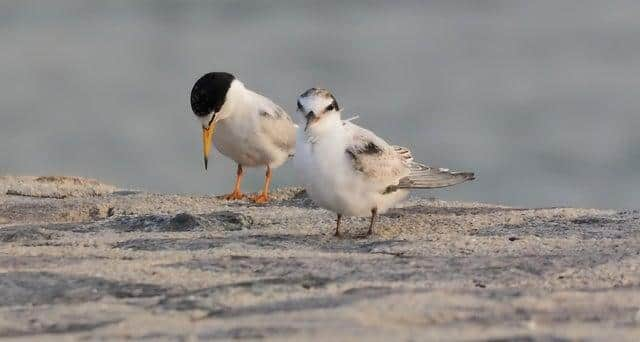Part of Hartlepool beach cordoned off to protect colony of nesting seabirds
and live on Freeview channel 276
The legally-protected little terns have again taken up residence on a stretch of the beach at Seaton Carew after nesting there for the first time in 2019.
Visitors are being asked to avoid disturbing their nests and Hartlepool Borough Council has cordoned off the area near the bus station while volunteer wardens from the Durham Wildlife Trust are monitoring the site.
Advertisement
Hide AdAdvertisement
Hide AdAround 24 of the birds recently arrived at the site and more are expected to follow.


Weighing only 40-60g and about the size of a starling, little terns are the smallest of the five species of terns that breed in the UK.
Sarah Scarr, the council’s heritage and countryside manager, said: “We would urge people to respect the site and keep their distance.
“The majority of people who use the beach respect the nesting site but in previous years we have had cases of people walking through nesting site or letting their dogs off leads in the vicinity – in breach of a dog exclusion order which applies to this particular stretch of beach.
Advertisement
Hide AdAdvertisement
Hide Ad“Adult birds will leave their nests if disturbed, leaving their eggs and chicks vulnerable to the weather and predators.”


The penalty for deliberately disturbing or damaging the nesting site is an unlimited fine and or 6 months in prison.
Last summer, a colony of 80 to 90 of the birds took up residence in the same area.
Sadly, they were disturbed when cones put up to protect them were flung onto the beach during one incident.
Advertisement
Hide AdAdvertisement
Hide AdThey were also often disturbed by people and dogs despite the area of the beach being part of a dog exclusion zone.
Terns spend the winter in West Africa and fly thousands of miles to nest here from May to August.
They lay their well-camouflaged eggs in shallow scrapes in the sand, but this makes the nests very difficult to spot and leaves them extremely vulnerable to disturbance and damage.
Anyone who sees the colony being disturbed is asked to report it to the police on 101.